[Source: https://littlevillagemag.com/prison-recidivism-covid-19-cedar-rapids/
Little Village Magazine, 17 June 2020, by Izabela Zaluska]
Eddie Walker was released from prison last June after being incarcerated for 18 years for a robbery charge. Now living in Iowa City, Walker recalled the arduous process of finding an apartment after his release; in one instance, he was told by a rental company that he was an ideal potential renter, but they wouldn’t draw up a lease for him due to his criminal record.
“That can be crushing, because you’re thinking ‘Man, I got a place,’ … and then someone says no because you have that X in that box,” Walker said.
“If you don’t have a support system, you’re thinking, ‘Man, you know, I’ll probably be better off if I go back inside.’ Those kinds of challenges, especially when you’re vulnerable because you’ve been out of society, it’s just like, that’s why I think a lot of people just reoffend. I’ve seen guys reoffend just to go back to prison to get off the street.”
Walker said one of the biggest misconceptions about re-entry is that people think it’s not that hard — you’re “starting over from scratch,” he said.
Before the COVID-19 pandemic, re-entry for formerly incarcerated individuals was already challenging: Finding a job, securing housing and getting a driver’s license are among the necessities people re-entering have to figure out, in addition to following the rules of their parole.
Experts and advocates say the pandemic has and will continue to exacerbate the challenges of re-entry. Unemployment has reached record highs in Iowa and the country; people who are re-entering might not know how closed down their communities are; and local organizations focused on helping those who are re-entering are trying to adapt their services for an unpredictable public health crisis.
“All of these barriers and challenges to re-entry really overlap, with one feeding into the other [and] creating these circumstances of setting people up to just fail and creating the perfect circumstances for recidivism, which is really unfortunate,” Shannon Harper, a sociology professor at Iowa State University, said. “Recidivism” is a criminal-justice term referring to a person reoffending after being cited or incarcerated for a previous crime.
“It really speaks to the importance of providing these individuals with the right amount of support and programs and financial and state assistance to help them be successful and accomplish what they need to to avoid going back into prison so we can get rid of this revolving door,” Harper said.
A perfect storm for outbreaks
Inmates and staff in prisons and jails are especially vulnerable to an outbreak of COVID-19 due to crowding, ventilation issues and people coming in and out.
“They are housed in close quarters. Many were already in poor health when they were incarcerated,” ACLU of Iowa Executive Director Mark Stringer said in a statement. “This makes for a perfect storm for outbreaks of COVID-19.”
Nationally, at least 34,500 prisoners have tested positive, according to the Marshall Project, a nonprofit news organization that reports on the criminal justice system. In Iowa, 30 inmates have tested positive for the virus, as well as 18 staff members, as of June 12.
The Iowa Department of Corrections and county jails began to take measures in March to prevent the spread of the new coronavirus in their facilities, including releasing certain individuals early. The Linn County and Johnson County jails have both reduced their populations.
As of March 23, Iowa’s prisons were 23 percent over their designed capacity. On June 1, the prisons were 10 percent over their designed capacity, with 7,627 inmates. The design capacity for Iowa’s prisons is 6,933.
Since March 1, there have been 1,580 individuals released, or about 527 per month, DOC spokesperson Cord Overton said in an email to Little Village on May 27. The “vast majority” of those have been released to parole supervision, he explained. Under “normal circumstances,” around 500 admissions and 500 releases occur every month.
The Iowa Board of Parole determines who is eligible for parole or work release. The DOC, along with the inmate’s counselor, provides information to the board, Overton said.
“Things that our counselors take into consideration are: those that are the lowest risk to reoffend, highest level of protective factors (such as stable housing, employment, family connections, etc). This is all in an effort of supporting the department’s mission of safer communities,” Overton said.
Michelle Heinz, who is the executive director of Inside Out Reentry Community in Iowa City, said Iowa has “really committed to expediting folks [and] trying to get them out … of the correctional facilities across the state.” She hopes to see a continued effort to reduce the prison population.
But Heinz also brought up the challenges for individuals getting released or waiting to be released, including not knowing how “locked down the communities are” due to COVID-19 and feeling anxious about their release.
“One thing that we hear over and over again is just that people are told that they’re approved, but they’re waiting on maybe a space in a residential facility or they don’t have housing to parole to,” Heinz said. A part of a person’s parole release plan is having housing identified and verified by DOC staff.
“So they’re just kind of stuck in this waiting limbo, which whenever you’re kind of in between and waiting, it just increases anxiety,” Heinz added.
‘I think I was told no a good 40 times’
In addition to housing, another challenge of re-entry is employment.
Gov. Kim Reynolds, in her Condition of the State address in January, said she has “made it a priority of this administration to focus on prisoner re-entry and rehabilitation.” Last October, the governor tasked a newly formed committee with recommending policies aimed at reducing recidivism and addressing fair chance hiring and re-entry. The committee published its recommendations in December 2019.
Little Village emailed the governor’s office asking if re-entry and fair chance hiring are still a priority for her, and how she plans to address the challenges people are facing when re-entering during COVID-19. We did not receive a response. (On Tuesday, June 16, however, Reynolds publicly announced her intention to pass an executive order restoring voting rights to Iowans who have been convicted of felonies, after meeting with Des Moines Black Lives Matter representatives and other social justice workers.)
In Linn County, one of the top priorities for the Board of Supervisors this year is fair chance hiring, which focuses on removing any questions about criminal records from applications for employment, housing, public benefits, insurance and other services. Linn County, along with the Cedar Rapids Metro Economic Alliance, held a panel discussion on the issue in February.
When people first think of fair chance hiring, Ban the Box is probably what first comes to mind, Supervisor Stacey Walker said. In fact, fair chance includes and goes beyond Ban the Box, which is a campaign focused on removing questions on job applications about one’s criminal record.
“Fair chance hiring is broader than [Ban the Box],” Walker said. “It’s about educating employers on what other services and supports are needed for individuals who are re-entering society. … [Fair chance hiring is] a suite of proposals and education initiatives to help employers to help prospective employees and to help our community understand.”
The education component of fair chance hiring is especially important, Walker said.
“For folks who have done their time, paid their debt to society, they should effectively be given a second chance at life, but we’re not doing that,” he said. “Society isn’t holding up their end of the bargain when it comes to that work, and that’s what these efforts are calling us to do — to hold up our end of the bargain.”
Cedar Rapids resident Belinda Spaeth currently works at Stoneking Enterprises in North Liberty, where she started last October. She got promoted to store manager in February.
“That’s huge to me. That’s huge to know that I made an impact to let him know that I’m trustworthy, that I am not what my past was,” Spaeth said about her boss, adding how understanding he is of her criminal record.
Before that, Spaeth said there were instances where she applied for jobs and was hired, until the company did a background check.
“Then all the sudden I would receive a phone call saying that ‘I am sorry, but we’ve got to take back our offer’ — and it’s all because of that,” Spaeth said, referring to how her criminal record has impacted her ability to get a job. “I think I was told no a good 40 times.”
It’s difficult to get housing without having a job, but it’s also hard to get a job without housing. And it goes beyond that.
“It’s not just not finding a job,” Speath said. “It ends up being a whole whirlwind of events. You can’t pay any bills so now you have no phone. So now you have no phone for people to call you for you to even get a job. You don’t have a vehicle. Don’t have money for a bus pass to even get to a job. You don’t have a home to live in because you can’t pay those bills. Now you’re living in a homeless shelter and a lot of places won’t hire you because you don’t have a permanent address.”
“At one point, I was working three minimum-wage jobs. I worked every single day, seven days a week, and all together between the three jobs probably about 80 hours a week. I never saw my children. But then I got burnt out. I got tired. … I couldn’t sleep, or actually, I couldn’t stay awake. So that’s when I ended up relapsing because I had to stay awake because I had work,” said Spaeth, referring to her addiction to meth. “I was clean for 10 years, and then I relapsed two years ago. I’m working on a year now.”
Her first charge, a felony for burglary, is from 15 years ago. She described the act as “pure stupidity.”
“I was very fortunate because I had a probation officer that did not believe that I was a criminal, but that I had an addiction that needed to be solved, and so she sent me to treatment,” Spaeth said.
She completed her two years of treatment for her drug addiction and received deferred judgement, which means that, due to completing her probation successfully, the felony is not on Spaeth’s record. However, she said there are times when it does show up on background checks even though it shouldn’t, and that she’s lost housing because of it.
Five years ago, she received a theft charge on her record, which she is trying to get expunged.
“I was in a domestic violence relationship, and I was guilty by association. I was not the one that stole anything, but because I was with him, we both got charged,” Spaeth said, adding that when people see her charges she often isn’t able to explain what happened. Sometimes when she tries, it can sound like she’s making excuses, even though she takes responsibility.
Under Iowa law, in order to qualify for a misdemeanor expungement, more than eight years have to pass since the date of the conviction. (Expungement in Iowa means a removal of a charge from the public record. The case still exists, but only the person that the case involves can get access to it.)
Felonies can’t be expunged, and not all misdemeanors can either — there are more than 20 circumstances where a misdemeanor can’t be expunged. Even if an individual can get a misdemeanor wiped away, they are limited to only one such expungement in their lifetime.
“So you have to choose carefully,” Rob Poggenklass, a senior staff attorney from Iowa Legal Aid, said. “And that’s one where we really encourage people to seek legal counsel because you want to make that decision carefully. Once you get a charge expunged that way, you can never do it again.”
Iowa Legal Aid has held around 30 expungement clinics across the state since the first one in June 2017, Poggenklass said. One of the more recent clinics was in Cedar Rapids in early February.
Due to the pandemic, there have been conversations on how to answer people’s questions on expungement and continue to help them during a time when it’s not safe to have hundreds of people in a space, Supervisor Walker said.
“We started talking about how do we bring all of these services that we sort of curated and we brought together when we were doing these clinics? What would it look like if all of those services existed in a hub — somewhere where we could access them, not just one day out of the year, but all the time? We certainly expect things to return to normal in this country and to be able to resume the in-person expungement clinic process, but until then, we’re going to have to get creative.”
Fair chance hiring remains an important issue for the Linn County supervisor.
“If you start to look at fair chance hiring, even through the lens of our new normal which is this global pandemic, I think what you start to see is a lot of these low-wage jobs that individuals who are reintegrating into society tend to take really are vital to the functioning of society,” he said. “We are never going to have a shortage of those jobs so long as our economic system continues the way it is, which means it is probably more important than ever to really think about these initiatives like fair chance hiring and how we help people move from incarceration to the workforce.”
“While priorities are constantly shifting for policymakers, like myself, there are some that remain pressing, and I think fair chance hiring is one of them.”
Treating a crisis within a crisis
Like other businesses and organizations, groups helping individuals after they’re released from jail or prison have had to adjust their operations during the pandemic.
RISE Program in Cedar Rapids has not been able to meet with people in person while their office is closed, the group’s director Mary Crandall said. RISE, which stands for Reintegration Initiative for Safety and Empowerment, is housed on the lower level of First Presbyterian Church.
“We’ve been conducting business that way, but it certainly has not been to the extent that we usually do,” Crandall said. “So, it’s changed significantly, but if they need something, I can still get it for them.”
Prior to the pandemic, people were able to stop by the office and pick things for themselves. But for now, Crandall has been communicating with people by phone and email, dropping off items such as clothes, shoes and bus tickets.
Crandall said she can’t wait for RISE to reopen, which depends on when the church reopens. She said she plans to get masks for everybody, disinfectant to routinely clean surfaces and limit how many people can be in the room.
“It’s been just harder, just that much harder,” Crandall said about re-entry. “They can’t come and see us for a cup of coffee. They can’t ride the bus. They can’t get a bike. Now they can [because places are reopening], but in the last couple months, those that were released can’t see anybody.”
Inside Out Reentry Community in Iowa City also had to close its physical office, Heinz said. They’ve been doing outreach and case management over the phone and through email, and have moved weekly group meetings online.
“We’re trying to be as creative as possible to try to still connect with folks that are incarcerated,” Heinz said. “We’ve always corresponded with people while they were still incarcerated, either through the online email system that the prison has or through letter writing, but we’ve really put a lot more energy into that … just to try to connect as much as we possibly can.”
An opening for reform
The correctional system in the U.S. has long been overwhelmed by the growing prison population, Harper said. But the pandemic has shown it is possible to reduce the jail and prison populations.
“What’s happened recently may cause policymakers in the criminal justice system to really think differently about punishment,” Harper said.
COVID-19 isn’t the only potential catalyst for reform. The killing of George Floyd by Minneapolis police officers has people across the country pushing for further changes to the criminal justice system, highlighting how black people have been and continue to be disproportionately impacted and incarcerated.
“What we’re facing is a real reckoning on a lot of levels,” Alicia Garza, co-founder of Black Lives Matter, told the Associated Press. “This (coronavirus) pandemic pulled back the curtains on decades of disinvestment, decades of devaluing and also now one of the major issues that black communities face is violence at the hands of the police.”
In Iowa, black adults are incarcerated at nearly 11 times the rate of white adults, according to a 2019 ACLU report on Iowa’s criminal justice system. Even though black people make up only 3 percent of Iowa’s population, they represent 25 percent of the state’s prison population.
“The unfortunate thing is … how we treat our prisoners and how we treat the formerly incarcerated doesn’t rank very high in the minds of most folks,” Walker said.
Daniel Zeno, ACLU of Iowa’s policy and advocacy director, said courage will be required by state, county and local leaders. Zeno was one of the speakers during a webinar the Iowa Harm Reduction Coalition held in April about criminal justice.
“It’s a moment for us to pause and say, ‘Is incarceration the response? Is it the appropriate response? Are there other things we can and should be doing?,’” Zeno said during the webinar. “… And to do that I think it really requires courage [and] leadership for leaders to say it may not be the norm, but we believe based on the research, based on public health data, based on the whole range of work that’s out there, that there’s a different way to do this that is more appropriate and that would be more helpful to individuals, families and communities.”
Both Harper and Walker believe the changes made during the pandemic can lead to broader changes in the criminal justice system. They also emphasized the importance of funding organizations that help people who are re-entering, such as RISE and Inside Out.
“When we force jail administrators and sheriffs all over this country to really take a long, hard look about who needs to be in their jails and prisons, they were able to quickly say, ‘I’ve got an entire population of folks who don’t need to be here,’” Supervisor Walker said. “… So what that demonstrates is the hierarchy is already there. Our jail administrators and top law enforcement officials already know who belongs and doesn’t belong in the penal system.”
“I think what awaits is whether or not these top law enforcement officials have the courage to accept these facts, and step out on faith and really challenge the conventional thinking of their profession and start advocating for some of these sweeping changes.”




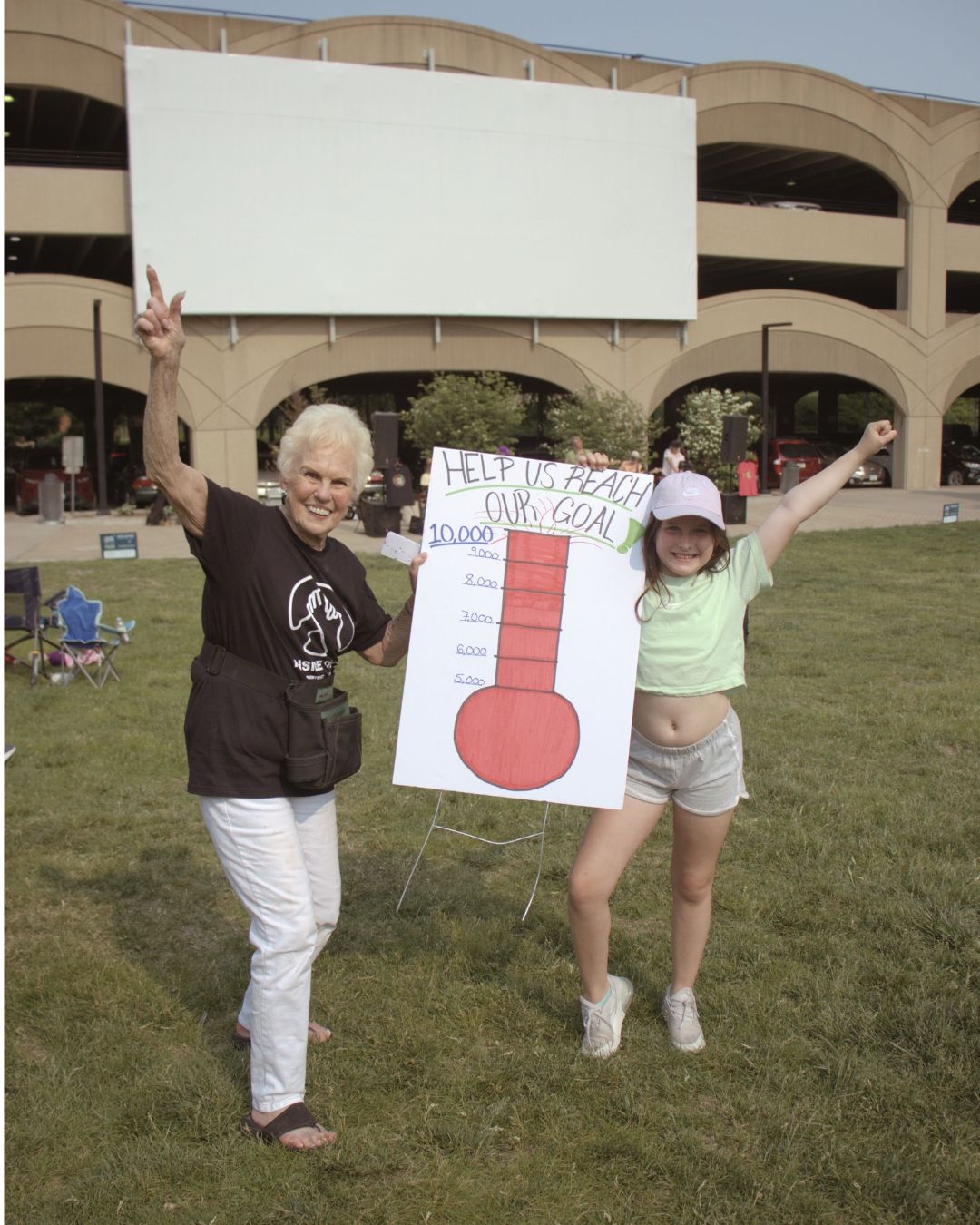
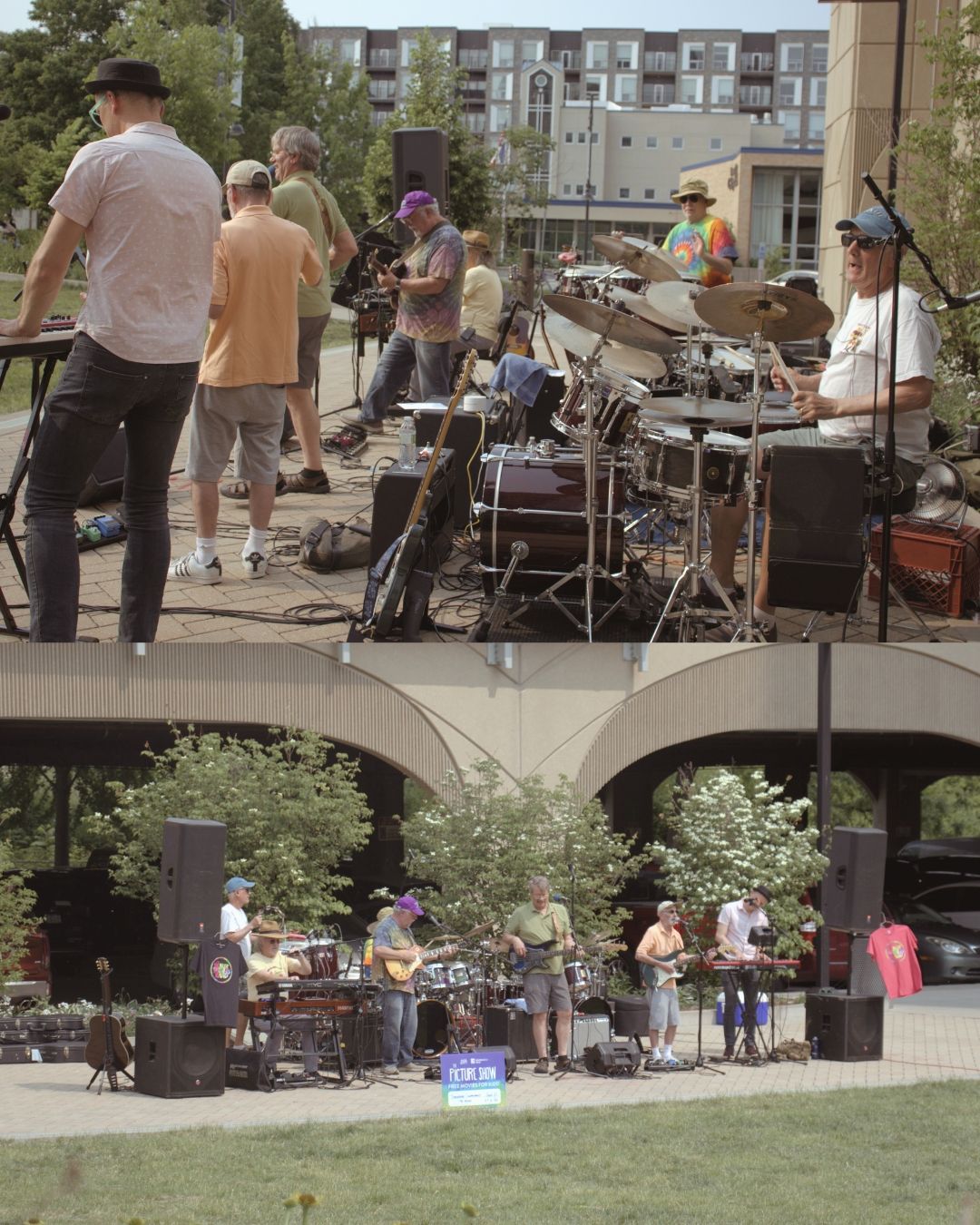
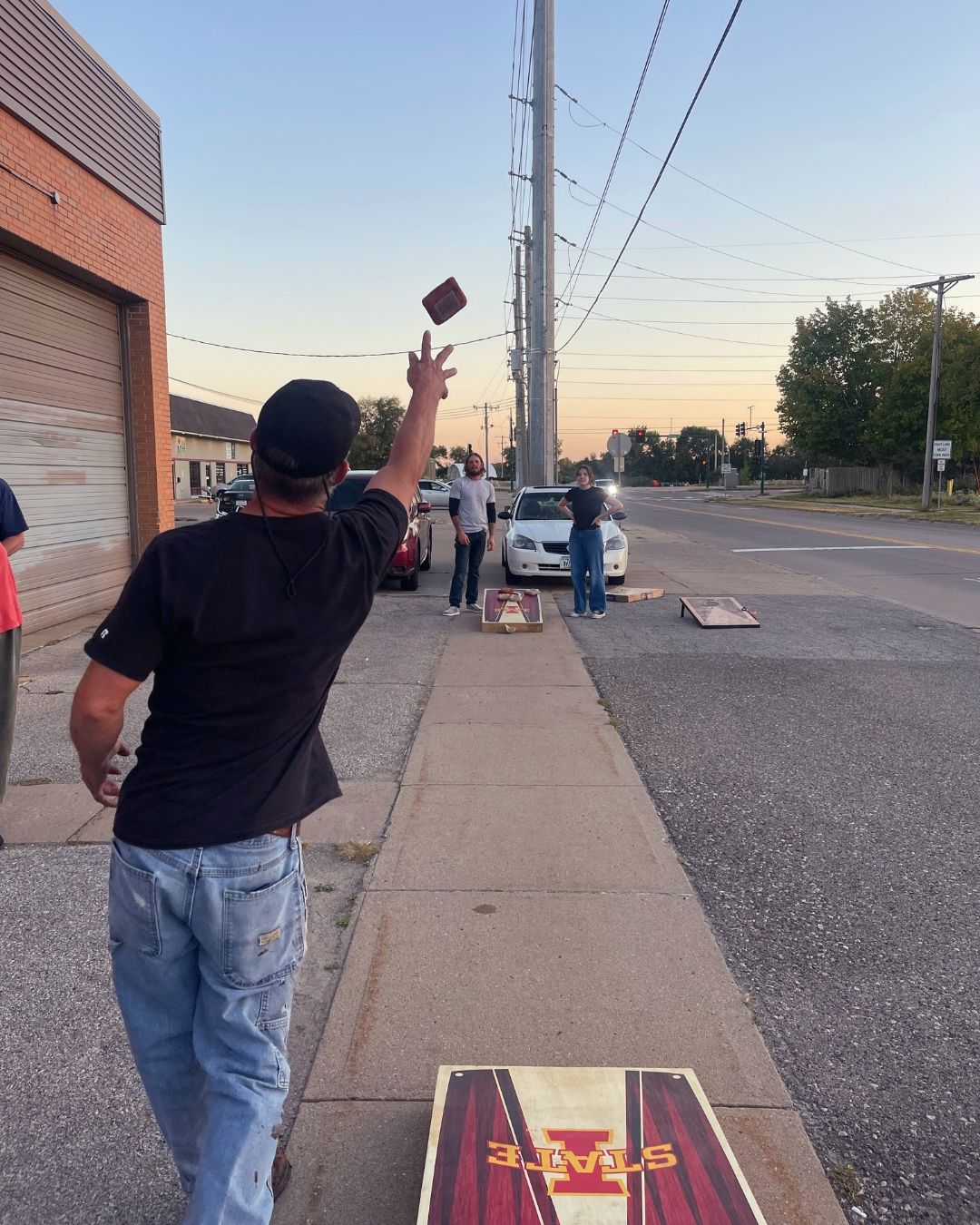



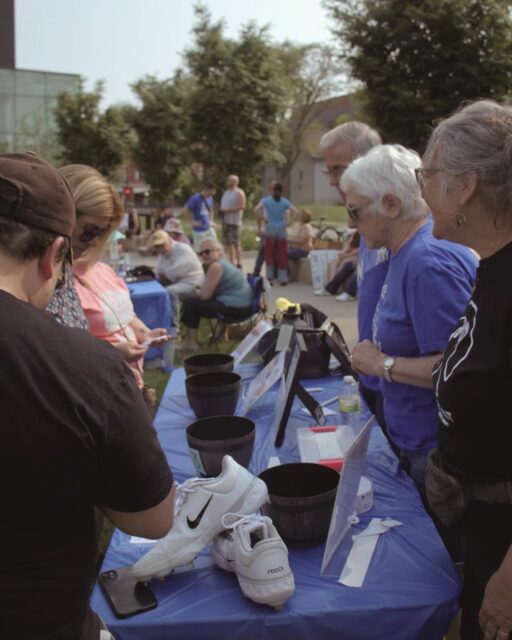


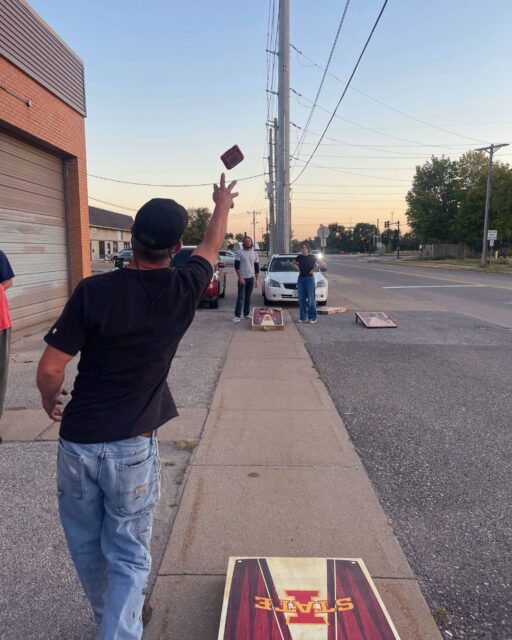

Last Updated: August 17, 2020 by InsideOut Reentry
‘How we treat the formerly incarcerated doesn’t rank very high in the minds of most folks’: With COVID-19, the fight against recidivism in Iowa is even more urgent
[Source: https://littlevillagemag.com/prison-recidivism-covid-19-cedar-rapids/
Little Village Magazine, 17 June 2020, by Izabela Zaluska]
Eddie Walker was released from prison last June after being incarcerated for 18 years for a robbery charge. Now living in Iowa City, Walker recalled the arduous process of finding an apartment after his release; in one instance, he was told by a rental company that he was an ideal potential renter, but they wouldn’t draw up a lease for him due to his criminal record.
“That can be crushing, because you’re thinking ‘Man, I got a place,’ … and then someone says no because you have that X in that box,” Walker said.
“If you don’t have a support system, you’re thinking, ‘Man, you know, I’ll probably be better off if I go back inside.’ Those kinds of challenges, especially when you’re vulnerable because you’ve been out of society, it’s just like, that’s why I think a lot of people just reoffend. I’ve seen guys reoffend just to go back to prison to get off the street.”
Walker said one of the biggest misconceptions about re-entry is that people think it’s not that hard — you’re “starting over from scratch,” he said.
Before the COVID-19 pandemic, re-entry for formerly incarcerated individuals was already challenging: Finding a job, securing housing and getting a driver’s license are among the necessities people re-entering have to figure out, in addition to following the rules of their parole.
Experts and advocates say the pandemic has and will continue to exacerbate the challenges of re-entry. Unemployment has reached record highs in Iowa and the country; people who are re-entering might not know how closed down their communities are; and local organizations focused on helping those who are re-entering are trying to adapt their services for an unpredictable public health crisis.
“All of these barriers and challenges to re-entry really overlap, with one feeding into the other [and] creating these circumstances of setting people up to just fail and creating the perfect circumstances for recidivism, which is really unfortunate,” Shannon Harper, a sociology professor at Iowa State University, said. “Recidivism” is a criminal-justice term referring to a person reoffending after being cited or incarcerated for a previous crime.
“It really speaks to the importance of providing these individuals with the right amount of support and programs and financial and state assistance to help them be successful and accomplish what they need to to avoid going back into prison so we can get rid of this revolving door,” Harper said.
A perfect storm for outbreaks
Inmates and staff in prisons and jails are especially vulnerable to an outbreak of COVID-19 due to crowding, ventilation issues and people coming in and out.
“They are housed in close quarters. Many were already in poor health when they were incarcerated,” ACLU of Iowa Executive Director Mark Stringer said in a statement. “This makes for a perfect storm for outbreaks of COVID-19.”
Nationally, at least 34,500 prisoners have tested positive, according to the Marshall Project, a nonprofit news organization that reports on the criminal justice system. In Iowa, 30 inmates have tested positive for the virus, as well as 18 staff members, as of June 12.
The Iowa Department of Corrections and county jails began to take measures in March to prevent the spread of the new coronavirus in their facilities, including releasing certain individuals early. The Linn County and Johnson County jails have both reduced their populations.
As of March 23, Iowa’s prisons were 23 percent over their designed capacity. On June 1, the prisons were 10 percent over their designed capacity, with 7,627 inmates. The design capacity for Iowa’s prisons is 6,933.
Since March 1, there have been 1,580 individuals released, or about 527 per month, DOC spokesperson Cord Overton said in an email to Little Village on May 27. The “vast majority” of those have been released to parole supervision, he explained. Under “normal circumstances,” around 500 admissions and 500 releases occur every month.
The Iowa Board of Parole determines who is eligible for parole or work release. The DOC, along with the inmate’s counselor, provides information to the board, Overton said.
“Things that our counselors take into consideration are: those that are the lowest risk to reoffend, highest level of protective factors (such as stable housing, employment, family connections, etc). This is all in an effort of supporting the department’s mission of safer communities,” Overton said.
Michelle Heinz, who is the executive director of Inside Out Reentry Community in Iowa City, said Iowa has “really committed to expediting folks [and] trying to get them out … of the correctional facilities across the state.” She hopes to see a continued effort to reduce the prison population.
But Heinz also brought up the challenges for individuals getting released or waiting to be released, including not knowing how “locked down the communities are” due to COVID-19 and feeling anxious about their release.
“One thing that we hear over and over again is just that people are told that they’re approved, but they’re waiting on maybe a space in a residential facility or they don’t have housing to parole to,” Heinz said. A part of a person’s parole release plan is having housing identified and verified by DOC staff.
“So they’re just kind of stuck in this waiting limbo, which whenever you’re kind of in between and waiting, it just increases anxiety,” Heinz added.
‘I think I was told no a good 40 times’
In addition to housing, another challenge of re-entry is employment.
Gov. Kim Reynolds, in her Condition of the State address in January, said she has “made it a priority of this administration to focus on prisoner re-entry and rehabilitation.” Last October, the governor tasked a newly formed committee with recommending policies aimed at reducing recidivism and addressing fair chance hiring and re-entry. The committee published its recommendations in December 2019.
Little Village emailed the governor’s office asking if re-entry and fair chance hiring are still a priority for her, and how she plans to address the challenges people are facing when re-entering during COVID-19. We did not receive a response. (On Tuesday, June 16, however, Reynolds publicly announced her intention to pass an executive order restoring voting rights to Iowans who have been convicted of felonies, after meeting with Des Moines Black Lives Matter representatives and other social justice workers.)
In Linn County, one of the top priorities for the Board of Supervisors this year is fair chance hiring, which focuses on removing any questions about criminal records from applications for employment, housing, public benefits, insurance and other services. Linn County, along with the Cedar Rapids Metro Economic Alliance, held a panel discussion on the issue in February.
When people first think of fair chance hiring, Ban the Box is probably what first comes to mind, Supervisor Stacey Walker said. In fact, fair chance includes and goes beyond Ban the Box, which is a campaign focused on removing questions on job applications about one’s criminal record.
“Fair chance hiring is broader than [Ban the Box],” Walker said. “It’s about educating employers on what other services and supports are needed for individuals who are re-entering society. … [Fair chance hiring is] a suite of proposals and education initiatives to help employers to help prospective employees and to help our community understand.”
The education component of fair chance hiring is especially important, Walker said.
“For folks who have done their time, paid their debt to society, they should effectively be given a second chance at life, but we’re not doing that,” he said. “Society isn’t holding up their end of the bargain when it comes to that work, and that’s what these efforts are calling us to do — to hold up our end of the bargain.”
Cedar Rapids resident Belinda Spaeth currently works at Stoneking Enterprises in North Liberty, where she started last October. She got promoted to store manager in February.
“That’s huge to me. That’s huge to know that I made an impact to let him know that I’m trustworthy, that I am not what my past was,” Spaeth said about her boss, adding how understanding he is of her criminal record.
Before that, Spaeth said there were instances where she applied for jobs and was hired, until the company did a background check.
“Then all the sudden I would receive a phone call saying that ‘I am sorry, but we’ve got to take back our offer’ — and it’s all because of that,” Spaeth said, referring to how her criminal record has impacted her ability to get a job. “I think I was told no a good 40 times.”
It’s difficult to get housing without having a job, but it’s also hard to get a job without housing. And it goes beyond that.
“It’s not just not finding a job,” Speath said. “It ends up being a whole whirlwind of events. You can’t pay any bills so now you have no phone. So now you have no phone for people to call you for you to even get a job. You don’t have a vehicle. Don’t have money for a bus pass to even get to a job. You don’t have a home to live in because you can’t pay those bills. Now you’re living in a homeless shelter and a lot of places won’t hire you because you don’t have a permanent address.”
“At one point, I was working three minimum-wage jobs. I worked every single day, seven days a week, and all together between the three jobs probably about 80 hours a week. I never saw my children. But then I got burnt out. I got tired. … I couldn’t sleep, or actually, I couldn’t stay awake. So that’s when I ended up relapsing because I had to stay awake because I had work,” said Spaeth, referring to her addiction to meth. “I was clean for 10 years, and then I relapsed two years ago. I’m working on a year now.”
Her first charge, a felony for burglary, is from 15 years ago. She described the act as “pure stupidity.”
“I was very fortunate because I had a probation officer that did not believe that I was a criminal, but that I had an addiction that needed to be solved, and so she sent me to treatment,” Spaeth said.
She completed her two years of treatment for her drug addiction and received deferred judgement, which means that, due to completing her probation successfully, the felony is not on Spaeth’s record. However, she said there are times when it does show up on background checks even though it shouldn’t, and that she’s lost housing because of it.
Five years ago, she received a theft charge on her record, which she is trying to get expunged.
“I was in a domestic violence relationship, and I was guilty by association. I was not the one that stole anything, but because I was with him, we both got charged,” Spaeth said, adding that when people see her charges she often isn’t able to explain what happened. Sometimes when she tries, it can sound like she’s making excuses, even though she takes responsibility.
Under Iowa law, in order to qualify for a misdemeanor expungement, more than eight years have to pass since the date of the conviction. (Expungement in Iowa means a removal of a charge from the public record. The case still exists, but only the person that the case involves can get access to it.)
Felonies can’t be expunged, and not all misdemeanors can either — there are more than 20 circumstances where a misdemeanor can’t be expunged. Even if an individual can get a misdemeanor wiped away, they are limited to only one such expungement in their lifetime.
“So you have to choose carefully,” Rob Poggenklass, a senior staff attorney from Iowa Legal Aid, said. “And that’s one where we really encourage people to seek legal counsel because you want to make that decision carefully. Once you get a charge expunged that way, you can never do it again.”
Iowa Legal Aid has held around 30 expungement clinics across the state since the first one in June 2017, Poggenklass said. One of the more recent clinics was in Cedar Rapids in early February.
Due to the pandemic, there have been conversations on how to answer people’s questions on expungement and continue to help them during a time when it’s not safe to have hundreds of people in a space, Supervisor Walker said.
“We started talking about how do we bring all of these services that we sort of curated and we brought together when we were doing these clinics? What would it look like if all of those services existed in a hub — somewhere where we could access them, not just one day out of the year, but all the time? We certainly expect things to return to normal in this country and to be able to resume the in-person expungement clinic process, but until then, we’re going to have to get creative.”
Fair chance hiring remains an important issue for the Linn County supervisor.
“If you start to look at fair chance hiring, even through the lens of our new normal which is this global pandemic, I think what you start to see is a lot of these low-wage jobs that individuals who are reintegrating into society tend to take really are vital to the functioning of society,” he said. “We are never going to have a shortage of those jobs so long as our economic system continues the way it is, which means it is probably more important than ever to really think about these initiatives like fair chance hiring and how we help people move from incarceration to the workforce.”
“While priorities are constantly shifting for policymakers, like myself, there are some that remain pressing, and I think fair chance hiring is one of them.”
Treating a crisis within a crisis
Like other businesses and organizations, groups helping individuals after they’re released from jail or prison have had to adjust their operations during the pandemic.
RISE Program in Cedar Rapids has not been able to meet with people in person while their office is closed, the group’s director Mary Crandall said. RISE, which stands for Reintegration Initiative for Safety and Empowerment, is housed on the lower level of First Presbyterian Church.
“We’ve been conducting business that way, but it certainly has not been to the extent that we usually do,” Crandall said. “So, it’s changed significantly, but if they need something, I can still get it for them.”
Prior to the pandemic, people were able to stop by the office and pick things for themselves. But for now, Crandall has been communicating with people by phone and email, dropping off items such as clothes, shoes and bus tickets.
Crandall said she can’t wait for RISE to reopen, which depends on when the church reopens. She said she plans to get masks for everybody, disinfectant to routinely clean surfaces and limit how many people can be in the room.
“It’s been just harder, just that much harder,” Crandall said about re-entry. “They can’t come and see us for a cup of coffee. They can’t ride the bus. They can’t get a bike. Now they can [because places are reopening], but in the last couple months, those that were released can’t see anybody.”
Inside Out Reentry Community in Iowa City also had to close its physical office, Heinz said. They’ve been doing outreach and case management over the phone and through email, and have moved weekly group meetings online.
“We’re trying to be as creative as possible to try to still connect with folks that are incarcerated,” Heinz said. “We’ve always corresponded with people while they were still incarcerated, either through the online email system that the prison has or through letter writing, but we’ve really put a lot more energy into that … just to try to connect as much as we possibly can.”
An opening for reform
The correctional system in the U.S. has long been overwhelmed by the growing prison population, Harper said. But the pandemic has shown it is possible to reduce the jail and prison populations.
“What’s happened recently may cause policymakers in the criminal justice system to really think differently about punishment,” Harper said.
COVID-19 isn’t the only potential catalyst for reform. The killing of George Floyd by Minneapolis police officers has people across the country pushing for further changes to the criminal justice system, highlighting how black people have been and continue to be disproportionately impacted and incarcerated.
“What we’re facing is a real reckoning on a lot of levels,” Alicia Garza, co-founder of Black Lives Matter, told the Associated Press. “This (coronavirus) pandemic pulled back the curtains on decades of disinvestment, decades of devaluing and also now one of the major issues that black communities face is violence at the hands of the police.”
In Iowa, black adults are incarcerated at nearly 11 times the rate of white adults, according to a 2019 ACLU report on Iowa’s criminal justice system. Even though black people make up only 3 percent of Iowa’s population, they represent 25 percent of the state’s prison population.
“The unfortunate thing is … how we treat our prisoners and how we treat the formerly incarcerated doesn’t rank very high in the minds of most folks,” Walker said.
Daniel Zeno, ACLU of Iowa’s policy and advocacy director, said courage will be required by state, county and local leaders. Zeno was one of the speakers during a webinar the Iowa Harm Reduction Coalition held in April about criminal justice.
“It’s a moment for us to pause and say, ‘Is incarceration the response? Is it the appropriate response? Are there other things we can and should be doing?,’” Zeno said during the webinar. “… And to do that I think it really requires courage [and] leadership for leaders to say it may not be the norm, but we believe based on the research, based on public health data, based on the whole range of work that’s out there, that there’s a different way to do this that is more appropriate and that would be more helpful to individuals, families and communities.”
Both Harper and Walker believe the changes made during the pandemic can lead to broader changes in the criminal justice system. They also emphasized the importance of funding organizations that help people who are re-entering, such as RISE and Inside Out.
“When we force jail administrators and sheriffs all over this country to really take a long, hard look about who needs to be in their jails and prisons, they were able to quickly say, ‘I’ve got an entire population of folks who don’t need to be here,’” Supervisor Walker said. “… So what that demonstrates is the hierarchy is already there. Our jail administrators and top law enforcement officials already know who belongs and doesn’t belong in the penal system.”
“I think what awaits is whether or not these top law enforcement officials have the courage to accept these facts, and step out on faith and really challenge the conventional thinking of their profession and start advocating for some of these sweeping changes.”
Category: media